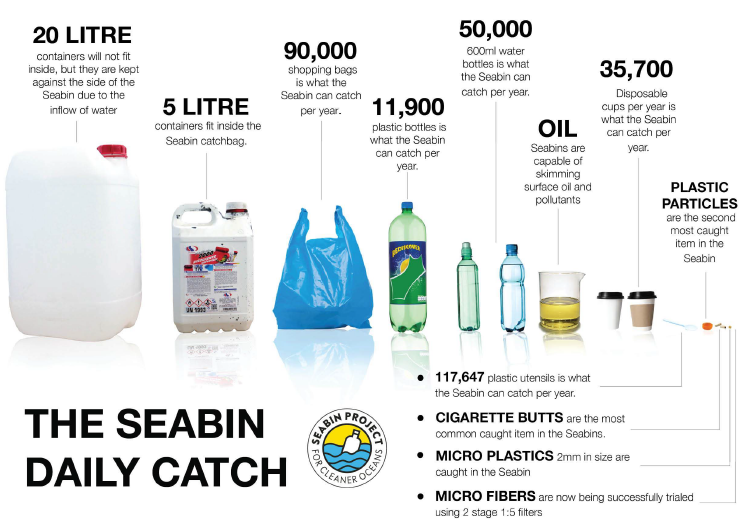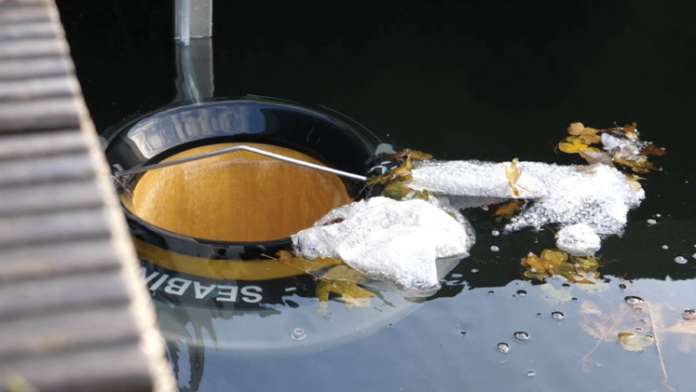Toronto’s waterfront area is often plagued with litter issues. Gum, cigarette butts, bottles and caps, and napkins have long been a scourge. But now, the city is experimenting with a unique piece of technology to cut down on the impact of water-bound litter.
Seabins are specially designed floating trash cans that capture trash, oil, fuel, microplastics and more, using pumps and filters. They’re moored to the side of docks, allowing easy access when they need to be cleaned out.
Litter is a global issue and the impact it has on water users inspired two Australians, Pete Ceglinski and Andrew Turton, to take action. The duo initially managed to raise $350,000 using online crowdfunding, and the Seabin concept went on to be picked up by W Products and Solutions who helped develop it into a commercially viable product.
The Seabin Project has since gone global and the group reports that over 700 units have been installed worldwide, capturing nearly 2,000 kg in waste every day. Their website lists some remarkable numbers on the amount of waste caught by a single Seabin per year:

Three units have now been installed at Toronto Marina, one of the first places in Canada to have them.
“We look at the harbour and we look at the inner harbour as well, and we say there’s got to be ways if you can trap garbage on the land and deal with it, why can’t we trap garbage in the water and deal with it? And that was the philosophy that led to the invention of these Seabins,” says Geoffrey Wilson, CEO of Ports Toronto, speaking to CTV News.
Cleaning out Toronto Marina had to be done manually before this, with cons in the form of higher costs and a not-so-pretty job to be done.
“Being a harbour, debris gathers in the water and we had to manually collect it,” says Mike Dwyer, Outer Harbour Marina’s manager, in an interview with CBC. “But since installing the bins, we’ve noticed a huge difference. They do all the work for us. All we have to do is empty the bag every day.”
According to the World Economic Forum, a garbage truck’s worth of plastic is dumped into our oceans every minute, and this trend is set to worsen in the coming decades. Seabins do not have the capacity to turn the tide overall but they’re punching well above their weight in localized environments, which is a step in the right direction.








































